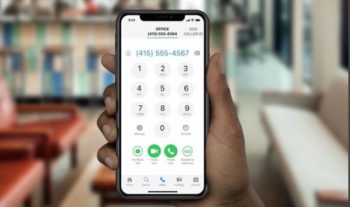We live in a time where technology is ever growing and innovating. What is new today, is old tomorrow. On one hand, change is driven by customer wants and needs. On the other hand, eye-opening innovation has lead to the creation of some things that have never existed before.
Fitness trackers and other wearable technologies are examples of those types of technological change. The fitness industry, as well as their customers, have embraced a wide variety of fitness tracking technologies because these gadgets are designed to encourage people to become and stay fit. Sensor technologies that measure important physiologic parameters, such as oxygen in the bloodstream, blood pressure, and EKG tracings, are providing healthcare professionals with valuable information.
As time goes by, the technology used in these wearables is growing ever more sophisticated. These devices are now able to track a wider range of different data elements and link them to estimates of your well-being and help with the management of chronic disease.
These devices are of great interest to the healthcare industry, including research organizations, because they collect huge amounts of data from millions of active users that reflect their daily activities and various physiologic parameters. But is that all for the good?
In this article, we’ll talk about what companies do with this data, how this data can be used in the healthcare industry, and both the positive and negative impact.
The evolution of wearable data
Not too long ago, fitness trackers like Fitbit were only able to count the steps you take on a daily basis, measure the distance you travel, and perhaps measure heart rate. Nowadays, wearable technologies have grown substantially more advanced and powerful. They can track your sleep quality, sleep patterns, time spent asleep/awake, blood pressure, oxygen levels, estimates of calories burned in a day, body weight, and BMI.
Although experts still have questions about how reliable certain types of tracking data are, particularly sleep tracking and calories burned, companies like Fitbit and others, are starting to combine data of different types—such as heart rate, motion, and oxygen levels—and apply proprietary algorithms in order to make better estimates of sleep quality.
Because the average calories burned while resting is different for every person, calculations of calories burned, such as those that appear on a treadmill, are still only estimates that are not particularly accurate. However, as the devices improve and data and algorithms become more reliable, it is highly likely that wearables will assist in the design of new approaches for health promotion and chronic disease management.
Furthermore, the data will contribute to an increasingly higher individual approach to patient treatment. For example, technologies are available that are relevant for people with diabetes because they can monitor blood glucose, track daily activities and diet plans, and even administer insulin—functions that are highly valuable for both individual patients and their doctors. Data from these technologies can be used to improve disease self-management for a variety of conditions and provide healthcare professionals with useful information based on remote monitoring of patients.
Potential risks of data tracking & gathering
The biggest risk and concern many experts have from all these companies gathering personal data is privacy protection. It’s no secret that various research reports have indicated that companies are selling off personal data to third parties. A report released by the Federal Trade Commission, which analyzed 12 different health and fitness apps, concluded that a staggering number of third parties received personal data, including full names, contact details, fitness schedules, diets, location, age, and gender.
The data is typically sold and used by advertising companies because the data helps them target a certain audience much more accurately. Advertising companies can use the data to create “clouds” of similar groups of people that they can then offer tailored products or packages to buy.
If health and life insurance companies are able to access data at an individual level, they can use it to increase or decrease the price of insurance packages because they know whether or not someone is appropriately dealing with a disease or illness.
There are also security issues related to hacking. Because data tracking can gather the most intricate details of an individual’s life, a hacker can use that information to harm the individual (e.g., identity theft) or use it as ammunition to threaten another party (e.g., using the information as ransom to obtain a significant amount of money). One safeguard against this is to use fake detail to sign up with tracking programs thus making cross-referencing the data to you personally impossible.
Just remember, if you’re not paying for an app or service, you are their source of income because you generate something valuable.
That being said, it’s important for both the consumer and governments to establish a healthy collaboration between the tech and healthcare industry in order to ensure that innovative technology products, such as fitness trackers and physiologic sensors that are used in our daily lives, provide not only useful and reliable information but also protect our privacy.
No one knows what the future holds for certain. Big data tracking of millions of people holds the promise of inspiring new ways to approach prevention. It could also end up making significant contributions to the health outcomes of people with chronic illnesses. But we must be careful to safeguard the data as it also has the potential of wreaking havoc on the lives of the very people it was designed to help.
Bill Hess
Website:
https://pixelprivacy.com/
Bill here from PixelPrivacy.com. My blog is all about making the world of online security accessible to everyone. I pride myself in writing guides that I'm certain even my own mom could read! Be sure to head over to my blog if you're interested in keeping your private information just that: Private!







Comment will held for moderation